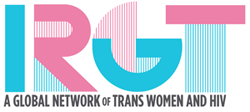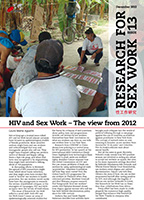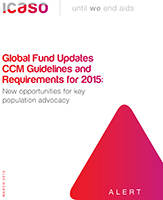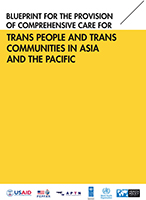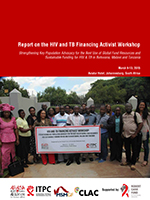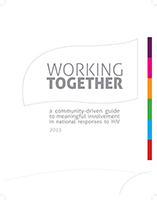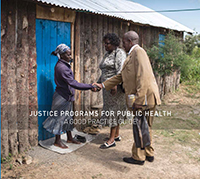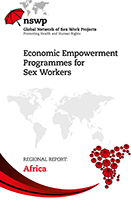
This issue of research for sex work reflects a small shift. Here, HIV and sex work don’t mean an array of epidemiologically oriented studies, but the frame for critiques of and questions about policy, laws, and programmes. Articles not written by sex workers themselves base their conclusions on what sex workers say. Here, no one tells sex workers how to run their lives.
Year of publication:
2012
Media:
